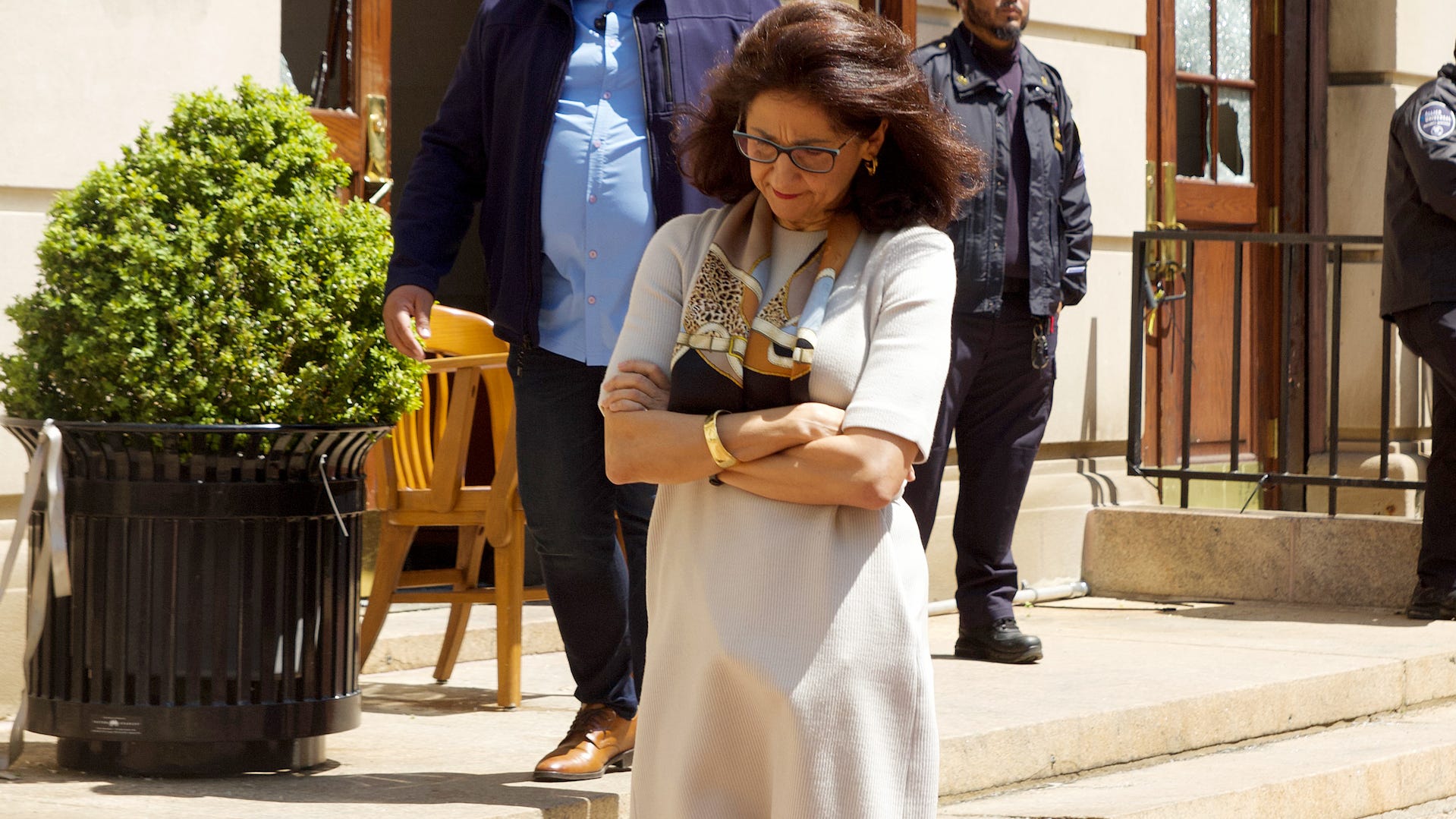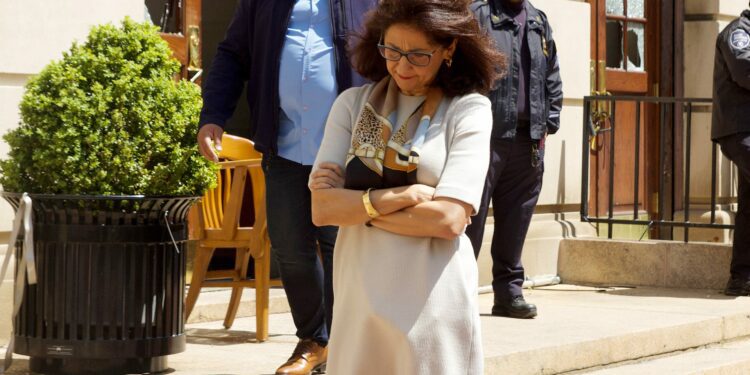
Columbia University president the latest to resign over protests
Last semester, Minouche Shafik drew criticism over her handling of protests on campus.
As students head back to class at colleges and universities across the nation, the Foundation for Individual Rights and Expression has released the organization’s annual survey of free speech rights at over 250 colleges, with only two Tennessee Universities making it into the top 100.
The University of Memphis and the University of Tennessee both ranked in the top 100 for the second year in a row, at No. 48 and No. 95, respectively.
Memphis dropped from last year’s rankings, where it sat at No. 39, but the University of Tennessee saw a slight improvement from last year’s No. 97 ranking.
The highest-ranked school in the survey is the University of Virginia. The lowest, for a second year in a row, is Harvard University.
The 5th annual survey asked over 58,000 students at public and private universities questions regarding students’ First Amendment rights of speech, expression and assembly.
Last year, Vanderbilt University made the top 100 at No. 89, but dropped significantly over the past year, and now sits at No. 140.
More: Vanderbilt University claims a commitment to free speech. But does it deliver?
The scores come after an incredibly tumultuous year for schools across the country, as issues surrounding the Israel-Hamas war exploded on campuses in the form of protests and encampments.
Here are the trends the new data reveals
The rankings are based on a composite score of 14 components: seven survey questions assess student perceptions of different aspects of the speech climate on their campus, and the remaining seven assess behavior by administrators, faculty, and students regarding free expression on campus.
Each school is given a score based on these components: the higher the score, the higher the ranking. The University of Virginia earned a total score of 73.41, earning the No. 1 slot, while the University of Harvard earned 0, placing it last.
Notable findings include:
∎ The top subjects students found most difficult to discuss on campus were the Israeli-Hamas war, with 55% of students reporting that it was a difficult subject to discuss, and 45% reporting abortion as a difficult topic, followed by issues like transgender rights, gun control and racial inequality.
∎ Middle Eastern students have the least faith in their administration to protect their free speech rights, with a third reporting that it is “not at all” or “not very” clear that the administration protects free speech on campus, and 37% reporting that the administration would be “not at all” or “not very” likely to defend a speaker’s rights during a speech controversy. By comparison, 25% of white students reported the same.
∎ Men of all races reported higher numbers of comfort in expressing controversial views in class or on campus than women — in almost every question regarding the topic, nearly 10% more men expressed comfort in doing so than women.
∎ Students are growing more comfortable with physical altercations. The number of students who report that shouting down a speaker to stop a campus speech, blocking other students from attending a campus speech, and using violence to stop a campus speech is acceptable in some form has risen incrementally since 2022. Students who say it is “never” acceptable has dropped since last year, from 37% to 32%.
Israel-Hamas war an ‘all-consuming’ topic
Sean Stevens, a senior research fellow in polling and analytics at the Foundation for Individual Rights and Expression, which is often known as FIRE, said the tension on campuses following the beginning of the Israel-Hamas war is an “all-consuming” topic.
“55% of students across the nation identified it as difficult to discuss,” Stevens said. “That’s a record high for this question, for any topic. The previous high was racial inequality in 2021, around 52%.”
Universities across the nation exploded in protest — both in support of Israel and Palestine — following the Oct.7 Hamas attack. Student encampments sprung up on a number of campuses, including Nashville’s Vanderbilt campus, demanding universities divest from Israel-supporting initiatives.
According to Stevens, while the response to many student free speech issues surrounding the war were factored into the school scores, the survey did not penalize most schools for their handling of the encampments due to their “confusing mix of protected and unprotected speech.”
Schools were instead affected by their administrative adherence to First Amendment principles. Cases that showed blatant speech suppression, like that of the University of Texas at Austin, where law enforcement were called in preemptively to prevent protest, and the University of Indiana, which saw reports of snipers on university buildings after administration called police to close the student encampment, earned the schools rankings in the bottom 10.
Both of these schools have poor “administrative support” scores, ranking 228 and 240, respectively.
Schools ranking in the top categories also dealt with student encampments. And although not all were handled perfectly — the University of Virginia for instance, the top-ranked school, also called law enforcement in to remove protesters — the schools were given higher marks for going through the proper de-escalation steps in addressing student demands and “resisting the urge to punish students and faculty for their expression.”
Vanderbilt University had four students and one reporter arrested in the melee of the student protests.
Stevens said a number of schools have “taken a hit” in student’s trust in their administration.
“I do think schools that have really taken a hit in terms of how the students perceive their administration, and that that trust may be difficult to restore. Although at I think in at least a couple of the places where these incidents occurred, there’s new incoming administration for that very reason,” he said. “I wouldn’t necessarily say they’re going to be able to wipe this slate clean, but the new administration might be better equipped to rebuild that trust than the person who lost it in the first place.”
The USA TODAY Network – Tennessee’s coverage of First Amendment issues is funded through a collaboration between the Freedom Forum and Journalism Funding Partners.
Have a story to tell? Reach Angele Latham by email at [email protected], by phone at 931-623-9485, or follow her on Twitter at @angele_latham
Source link : http://www.bing.com/news/apiclick.aspx?ref=FexRss&aid=&tid=66d9f005b4c241cbbd931ea90469e7d2&url=https%3A%2F%2Fwww.tennessean.com%2Fstory%2Fnews%2Feducation%2F2024%2F09%2F05%2Ftennessee-universities-free-speech-memphis-tennessee-rank-high%2F75063644007%2F&c=8835404174375658264&mkt=en-us
Author :
Publish date : 2024-09-05 05:46:00
Copyright for syndicated content belongs to the linked Source.





